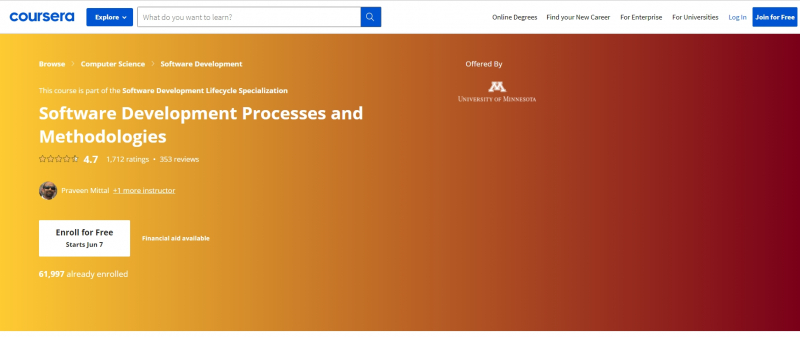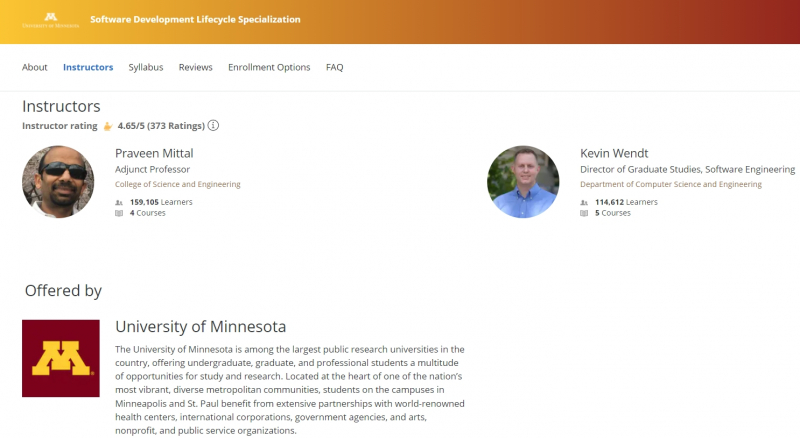Software Development Processes and Methodologies by University of Minnesota
As people see increasing automation and technological developments, software is quickly becoming a vital component of human life. If software is to become a fundamental part of human existence, the software industry must continue to find better ways to design software, just as many expect cars to run all of the time and can't afford for them to break or reboot unexpectedly.
Software Development Processes and Methodologies offered by University of Minnesota provides you an insight of how software development teams work. What procedures do they employ? What are some of the most widely used methodologies in the industry? What are the advantages and disadvantages of each? You will get enough knowledge to engage in meaningful discussions on software development methods.
After completing this course, a learner will be able to:
- Apply core software engineering practices at conceptual level for a given problem.
- Compare and contrast traditional, agile, and lean development methodologies at high level. These include Waterfall, Rational Unified Process, V model, Incremental, Spiral models and overview of agile mindset.
- Propose a methodology best suited for a given situation
This course offers:
- Flexible deadlines: Reset deadlines in accordance to your schedule.
- Certificate : Earn a Certificate upon completion
- 100% online
- Beginner Level
- Approx. 22 hours to complete
- Subtitles: Arabic, French, Portuguese (European), Italian, Vietnamese, German, Russian, English, Spanish
- Course 1 of 4 in the Software Development Lifecycle Specialization
Coursera Rating: 4.7/5.0
Enroll here: https://www.coursera.org/learn/software-processes












